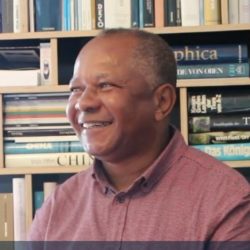For the moment …
For the moment, our association is taking a break. Why?
Eva Keller still travels to Masoala every 2-3 years spending time with the people there whom she has known for many years. Due to her job situation, however, these visits are too short for her to gain an in-depth understanding of the current situation in which the people living in the vicinity of the Masoala National Park find themselves. Paul Harimalala for his part is at the moment unable to visit the villages about which we have been reporting for years.
BUT: The assocation „Human Rights in Masoala“ continues to exist! And as soon as we feel comfortable sharing news with you, we will do so!
Who are ‘they’?
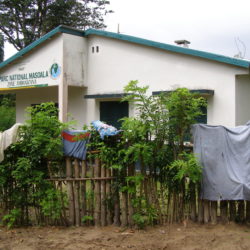
This text discusses why, from the perspective of the local population in Masoala, the Masoala National Park has little to do with lemurs and trees and a lot with power and inequality.
The Banana Plant and the Moon
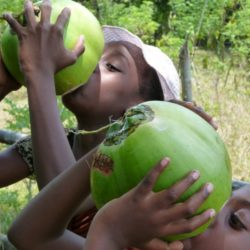
In this article, Eva Keller explains in detail why farmers in Masoala perceive the park to be a threat to their livelihood and, indeed, to the future of their families.
The danger of misunderstanding ‘culture’
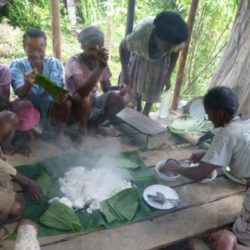
Eva Keller argues that if conservationists are sincere about their willingness to take local people’s culture into account, as they routinely state they are, then they cannot reduce ‘culture’ to what fits conservation programmes.
Shadows over the Masoala National Park in Madagascar
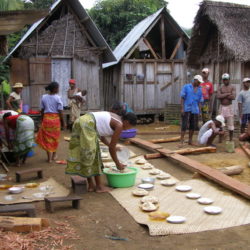
In this newspaper article, Eva Keller shows why farmers perceive the Masoala National Park as a threat to their livelihood and future.
Travelling to Masoala?
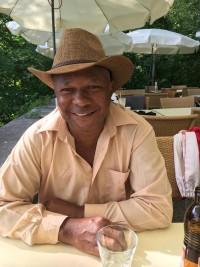
To those of you who plan to visit Masoala, we recommend HARIMALALA Paul Clément as your tourist guide.
Paul is an extraordinarily competent and knowledgeable person; he is an official tourist guide and speaks French as well as some English.
If you wish to contact him, please do so via the Contact form on this website.
New Book on Nature Conservation in Masoala
Attachment: book
13 March 2015
Eva Keller, founder of Human Rights in Masoala, has been working for many years on a social anthropological research project concerning perceptions of nature conservation in Masoala. Her book BEYOND THE LENS OF CONSERVATION. MALAGASY AND SWISS IMAGINATIONS OF ONE ANOTHER has now been published.
This is what the book’s about:
Nowadays, items of every kind are being driven, shipped and flown around the world. In December, Swiss supermarkets sell Malagasy litchies while the people in Madagascar use Nestlé’s empty condensed milk tins as measuring cups for rice and almost any other non-liquid item. However, not only goods travel the world but also ideas, values and visions which become articulated in global agendas. Nature conservation is one such very prominent contemporary agenda leading to innumerable conservation projects all around the world. The Masoala National Park is one such project, administered by the Malagasy authorities and an US-based conservation NGO and heavily supported by the zoo in Zurich.
The key question that is addressed in the book is this: Does such a cooperation between conservation actors in Switzerland and in Madagascar trigger a connection between people living in these two far-flung places? Does the project provide a bridge of contact between them? In order to answer this question, Eva Keller examines the Masoala National Park from two different points of view: from that of visitors to the Swiss zoo exhibit about the park, on the one hand, and that of Malagasy farmers living at the park’s edge, on the other. What do people in Switzerland and what do people in Madagascar “see” when they look at this particular nature conservation project? Is there anything like a shared view, a shared vision? Unfortunately, the answer is “no”. From the point of view of those who look from Switzerland towards Madagascar through the lens of nature conservation, the farmers in Masoala appear as ignorant and deficient. From the point of view of the farmers who look at the park through the lens of Malagasy culture, on the other hand, those who support the park appear as being ill-disposed towards them. Thus, instead of building a bridge, nature conservation in Masoala widens the gap between people in the global North and South.
At the moment, the book is only being published in hardback ($95 / £60). However, during the month of March 2015, you can order it at a discount of 50%. Please find the order form here: https://www.berghahnbooks.com/extras/docs/flyer/KellerBeyond_9781782385523.html
Also, the publisher (Berghahn) is happy to discuss substantial discounts for university bookstores to enable the book being used in teaching. Please contact Ben Parker: [email protected]
Answers to our petition
Our online petition “Respect basic human rights in Masoala, Madagascar” has up to date been signed by 314 people from around the world. After we had received 300 signatures, we informed the deputy of the district of Maroantsetra, the Director of the Masoala National Park and the head of the Wildlife Conservation Society in Madagascar about the petition. Within a short time we received detailed answers by the park director and by the head of WCS Madagascar.
The park director denies in her answer that anything should ever have taken place that was not compliant with the relevant laws, and she emphasises that the park management has never received any complaints from local people. She admonishes us for having spread false information. She also writes that upon having heard of our petition, two special “missions” were sent out into the field, one including a high-ranking government representative (the Chef Cantonnement Forestier du District de Maroantsetra) and that there were no complaints whatsoever either.
In this answer is hidden the well-known tactic of intimidation. A lot of people in the countryside in Madagascar are generally speaking afraid of the state as it rarely brings anything good for them. This is why only few would dare to voice, as individuals, complaints in front of an official delegation such as was sent to investigate our concerns. The letter of complaint addressed to the Deputy was, tellingly, not signed by any individuals other than the president of the political relevant political unit. It was a collective complaint.
The head of WCS Madagascar confirms in her answer that there have been complaints by local populations concerning the park’s boundary in various places over the past years. She also confirms that the present zoning map, which defines 80% of the peninsula as not usable for agricultural purposes, leaves little room for local people. She informs us that the zoning plan will expire this year and will thus be reconsidered, and the expresses her hope that this will solve the present conflicts. She emphasises, however, that WCS is only a financial and technical partner of the Masoala National Park and that it therefore is not in a position to make any decisions.
We will stay tuned to the issue that the people in the village of Marofototra complained about in their letter to the Deputy and which gave rise to our petition, and we hope that their needs and rights will finally be taken seriously!
Update on our Petition
Our online petition “Respect basic human rights in Masoala, Madagascar” has up to date been signed by 318 people from around the world. After we had received 300 signatures, we informed the Deputy of the district of Maroantsetra, the Director of the Masoala National Park and the head of the Wildlife Conservation Society in Madagascar about the petition. Within a short time we received detailed answers by the park director and by the head of WCS Madagascar.
We have been informed that this year will see a reassessment of the land utilisation plan in connection with Protected Areas in the whole of Madagascar. This is very good news as it is a rare opportunity to change things for the better for local populations.
We have also been informed that the Deputy of the district in which the concerned village lies (district of Maroantsetra) held a meeting on 26/27 April 2016 in order to discuss with high-ranking government staff the issue of local people’s land rights. This, too, is very encouraging indeed.
We will stay tuned to the issue that the people in the village of Marofototra raised in their letter to the Deputy and which gave rise to our petition, and we hope that their needs and rights will find adequate consideration.
Eva Keller, President of the Association, 06/06/2016

